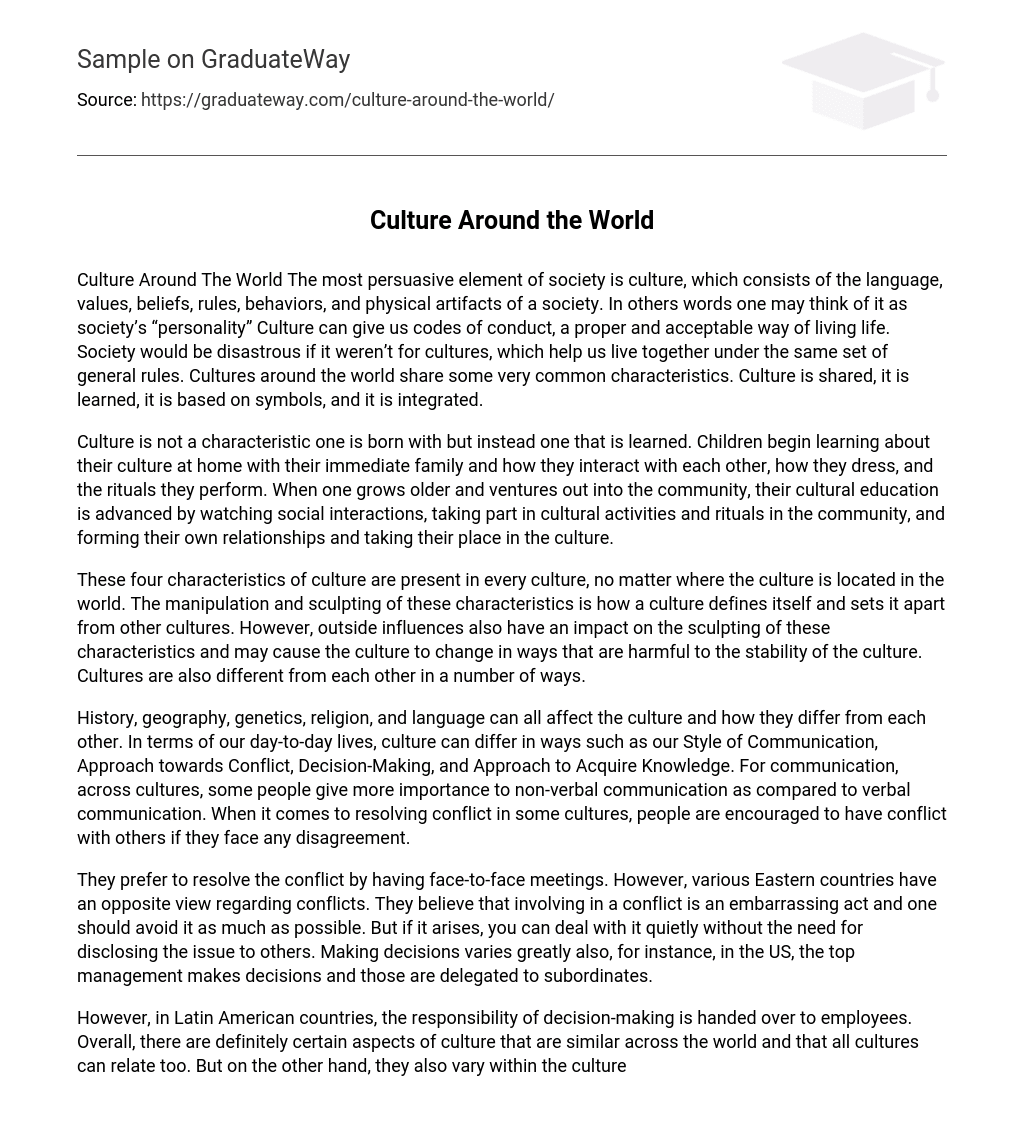Culture Around The World The most persuasive element of society is culture, which consists of the language, values, beliefs, rules, behaviors, and physical artifacts of a society. In others words one may think of it as society’s “personality” Culture can give us codes of conduct, a proper and acceptable way of living life. Society would be disastrous if it weren’t for cultures, which help us live together under the same set of general rules. Cultures around the world share some very common characteristics. Culture is shared, it is learned, it is based on symbols, and it is integrated.
Culture is not a characteristic one is born with but instead one that is learned. Children begin learning about their culture at home with their immediate family and how they interact with each other, how they dress, and the rituals they perform. When one grows older and ventures out into the community, their cultural education is advanced by watching social interactions, taking part in cultural activities and rituals in the community, and forming their own relationships and taking their place in the culture.
These four characteristics of culture are present in every culture, no matter where the culture is located in the world. The manipulation and sculpting of these characteristics is how a culture defines itself and sets it apart from other cultures. However, outside influences also have an impact on the sculpting of these characteristics and may cause the culture to change in ways that are harmful to the stability of the culture. Cultures are also different from each other in a number of ways.
History, geography, genetics, religion, and language can all affect the culture and how they differ from each other. In terms of our day-to-day lives, culture can differ in ways such as our Style of Communication, Approach towards Conflict, Decision-Making, and Approach to Acquire Knowledge. For communication, across cultures, some people give more importance to non-verbal communication as compared to verbal communication. When it comes to resolving conflict in some cultures, people are encouraged to have conflict with others if they face any disagreement.
They prefer to resolve the conflict by having face-to-face meetings. However, various Eastern countries have an opposite view regarding conflicts. They believe that involving in a conflict is an embarrassing act and one should avoid it as much as possible. But if it arises, you can deal with it quietly without the need for disclosing the issue to others. Making decisions varies greatly also, for instance, in the US, the top management makes decisions and those are delegated to subordinates.
However, in Latin American countries, the responsibility of decision-making is handed over to employees. Overall, there are definitely certain aspects of culture that are similar across the world and that all cultures can relate too. But on the other hand, they also vary within the culture itself. I believe cultures share the same understanding and basic foundation for its purpose but when it comes to details within the culture, they can vary, especially based on their ancestry.





